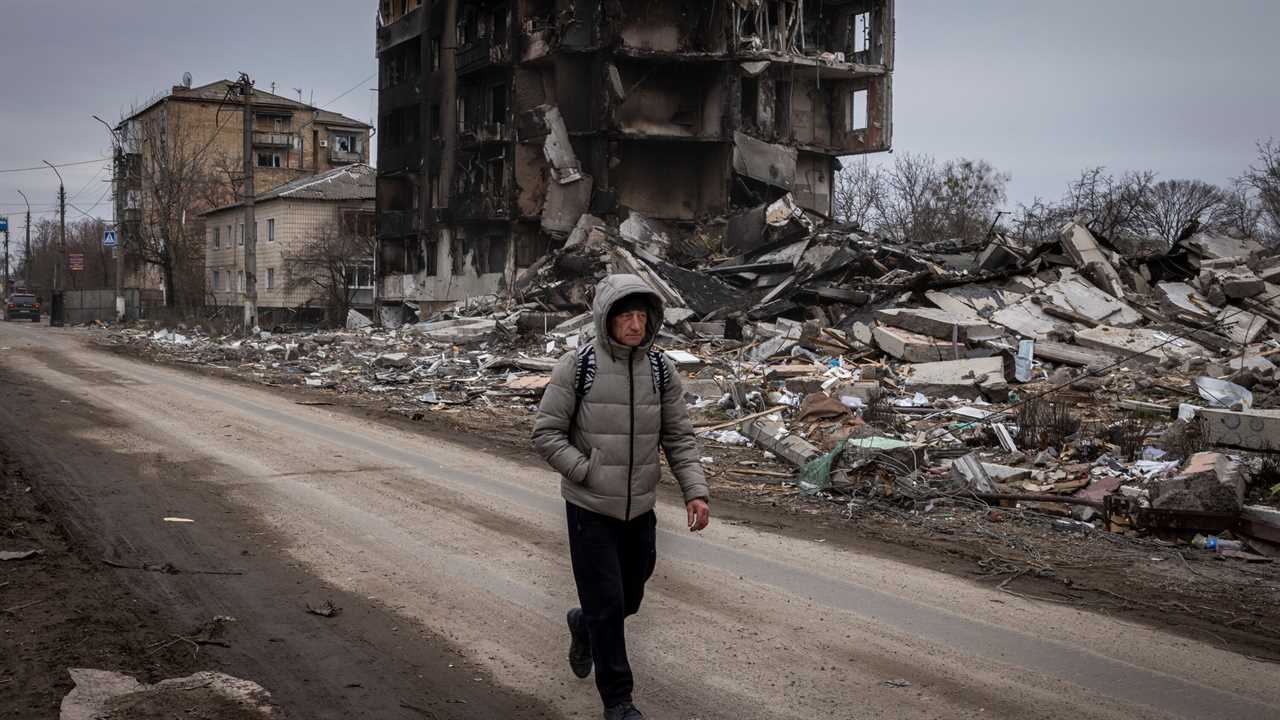
WASHINGTON — The Biden administration is vigorously debating how much the United States can or should assist an investigation into Russian atrocities in Ukraine by the International Criminal Court in The Hague, according to officials familiar with internal deliberations.The Biden team strongly wants to see President Vladimir V. Putin of Russia and others in his military chain of command held to account. And many are said to consider the court — which was created by a global treaty two decades ago as a venue for prosecuting war crimes, crimes against humanity and genocide — as the body most capable of achieving that.But laws from 1999 and 2002, enacted by lawmakers wary that the court might investigate Americans, limit the government’s ability to provide support. And the United States has long objected to any exercise of jurisdiction by the court over citizens of countries that are not part of the treaty that created it — like the United States, but also Russia.The internal debate, described by senior administration officials and others familiar with the matter on the condition of anonymity, has been partly shaped by a previously undisclosed 2010 memo by the Justice Department’s Office of Legal Counsel. Obtained by The New York Times, the memo interprets the scope and limits of permissible cooperation with the court.The discussions have also been marked by Pentagon opposition to softening the U.S. stance, even as congressional Republicans, long skeptics of the court, have signaled openness to finding a way to help it bring Russian officials to justice.For now, officials said, the primary focus has been on compiling evidence of apparent war crimes that are still unfolding — both the details of particular killings and intelligence that President Biden’s national security adviser, Jake Sullivan, asserted on Sunday indicates a high-level plan to brutalize the civilian population into terrorized subjugation.“This was something that was planned,” he said on ABC’s “This Week,” adding, “Make no mistake, the larger issue of broad-scale war crimes and atrocities in Ukraine lies at the feet of the Kremlin and lies at the feet of the Russian president.”But the unresolved deliberations about where to channel such intelligence explain why administration officials have been hazy about where efforts to prosecute Russian war crimes should center — even as evidence of large-scale atrocities has mounted, prompting Mr. Biden to label Mr. Putin a “war criminal” and to call for a “war crimes trial.”Mr. Sullivan, was vague, for example, at a news briefing last week when a reporter asked whether the president envisioned such a prosecution playing out at the International Criminal Court or some other tribunal.ImageAs evidence of large-scale atrocities has mounted, President Biden labeled President Vladimir V. Putin a “war criminal” and called for a “war crimes trial.”Credit...Kenny Holston for The New York Times“We have to consult with our allies and partners on what makes most sense as a mechanism moving forward,” he said. “Obviously, the I.C.C. is one venue where war crimes have been tried in the past, but there have been other examples in other conflicts of other mechanisms being set up.”But setting up other venues would raise its own obstacles. Among them, while the United Nations Security Council in the past helped establish special international courts to handle conflicts in places like Rwanda and the former Yugoslavia, Russia can veto any Council resolution seeking to establish a tribunal for Ukraine.Still, there are reasons to doubt that Mr. Putin and other senior Kremlin officials responsible for the war may ever stand trial, so long as they remain in power and ensconced in Russia. But war-crimes indictments, human rights specialists say, serve a “naming and shaming” function even without trials — and can inhibit defendants’ ability to travel abroad.Another possibility is a nation’s court with jurisdiction over war crimes on Ukrainian soil. Germany, for example, has war-crimes and crimes-against-humanity laws that cover the world. Prosecutors there said in March that they had started gathering evidence of deliberate attacks on civilians and civilian infrastructure, and two former ministers filed a complaint there last week asking prosecutors to charge Russian officials.Ukraine’s own prosecutor general has asked for international help in gathering evidence. Attorney General Merrick B. Garland said in recent days that administration officials were working on a multinational effort to shore up Ukraine’s efforts, while also holding discussions with European counterparts.Still, with Ukraine under continuing assault, the capacity of its justice system may be limited. The International CriminalBy: Charlie Savage
Title: U.S. Weighs Shift to Support Hague Court as It Investigates Russian Atrocities
Sourced From: www.nytimes.com/2022/04/11/us/politics/us-russia-ukraine-war-crimes.html
Published Date: Mon, 11 Apr 2022 09:00:21 +0000
Read More
 UK PoliticsWorld PoliticsVideosPrivacy PolicyTerms And Conditions
UK PoliticsWorld PoliticsVideosPrivacy PolicyTerms And Conditions
